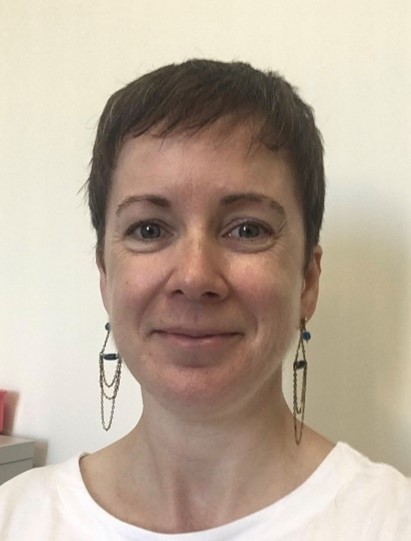Icebreaker with Melanie Crisfield (Research Development Advisor at Doctoral College)
Melanie is responsible for delivering a university-wide PGR training and development programme that is mapped to the Vitae Researcher Development Framework (RDF) and which promotes the excellent PGR training taking place in Schools and Institutes to the wider QM PGR community. We met with her to discuss the nuts and bolts of her everyday work!

Q: How long have been in research and development? And how have you witnessed its evolving nature?
A: I’ve been in researcher development for three years now and the biggest change I’ve seen is across the course of the pandemic. There was a huge shift in PGR communities because we were working remotely, and that had a substantial impact on PGR mental health and wellbeing. There had already been an increasing focus in HE on PGR mental health and wellbeing, and I think the pandemic really made it clear to a lot of people exactly who important it is to consider these things and made it more acceptable to talk about. This has led to better support for PGRs and an awareness that we have to keep thinking about and acting on this.
Q: What is the most rewarding part of your work?
A: Being able to support a student who is struggling and help them find a way through that. This can be struggling for any reason – with mental health concerns, with understanding what the PhD process entails, with figuring out how to navigate the university and its systems. Being a student at any level can be daunting and confusing, and being a PGR student is much more challenging because of the higher degree of independence PGRs have. It’s great to be able to help someone find their feet and to come through to the other side of a problem.
Q: What do you think should be the utmost priority to make lives of PGRs easier?
A: Making the doctoral process as smooth and as transparent as possible. Doing a PhD is not meant to be easy – it’s definitely meant to be hard! But being hard should come from the depth of the research you’re doing, not because you’re struggling with understanding the process or internal systems. Too often, students are not made aware of why universities run things the way they do. I promise we have reasons! It’s important that we communicate those reasons to you so the process makes sense.
Q: What is one piece of advice you’d give to PGRs?
A: Ask questions. Ask all the questions. Ask them even if you think they are stupid questions. I guarantee you people before you have had the same questions and people after you will have the same questions. You are learning something – you are not expected to know everything all of the time. (Even after you finish your PhD, you are not expected to know everything all of the time.) We know you probably have questions, but we don’t know WHAT those questions are until you ask them. The only way we can help you is if you ask us.
Q: Some encouraging words for our newcomers?
A: It’s a challenging journey and you are not alone! There are lots of people here to support you when you need it. It can be a big thing to ask for help, but the sentence ‘can you help me?’ is a very short one. The university (the whole university – all of us as members of staff) want you to succeed! That’s why we are here, and that’s why you are here.
Q: Any other comments, questions?
A: If you’re not sure who to ask, ask us! Even if we don’t know the answer to your questions, chances are we know who does and can get you to the right place. Remember to work hard AND to have fun! The PhD is not your whole life – no matter how much it feel like it could be!